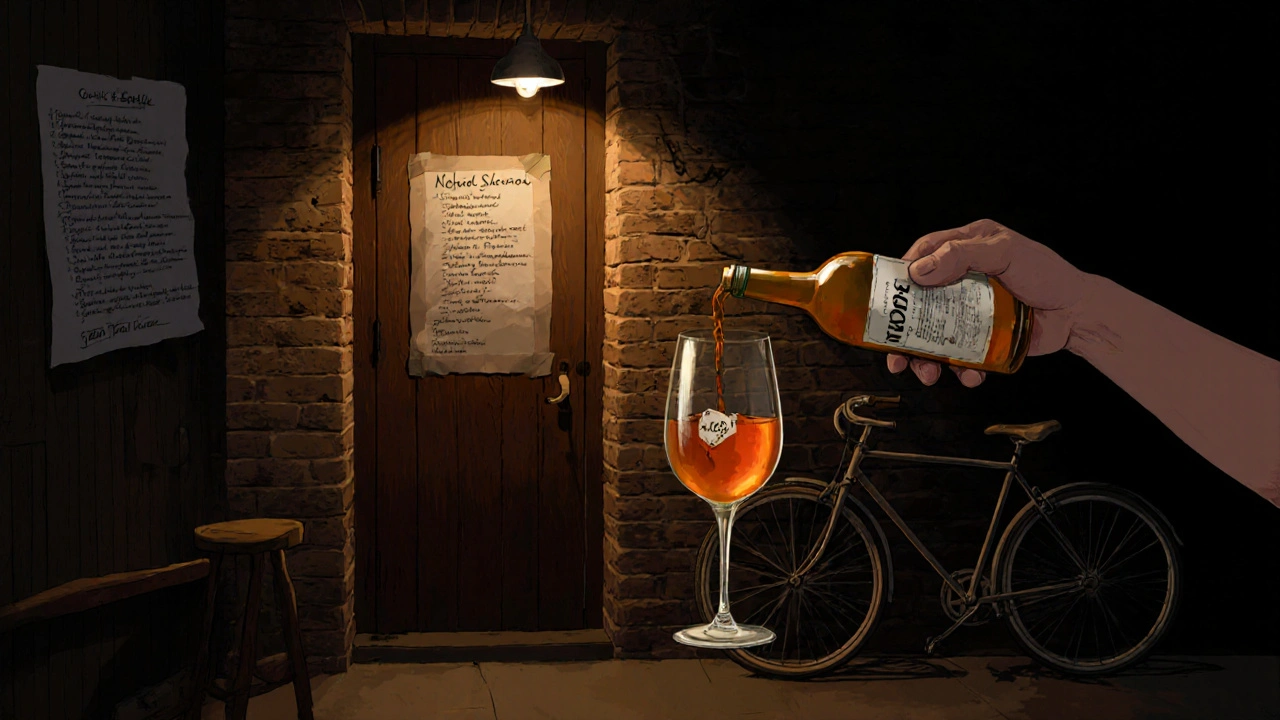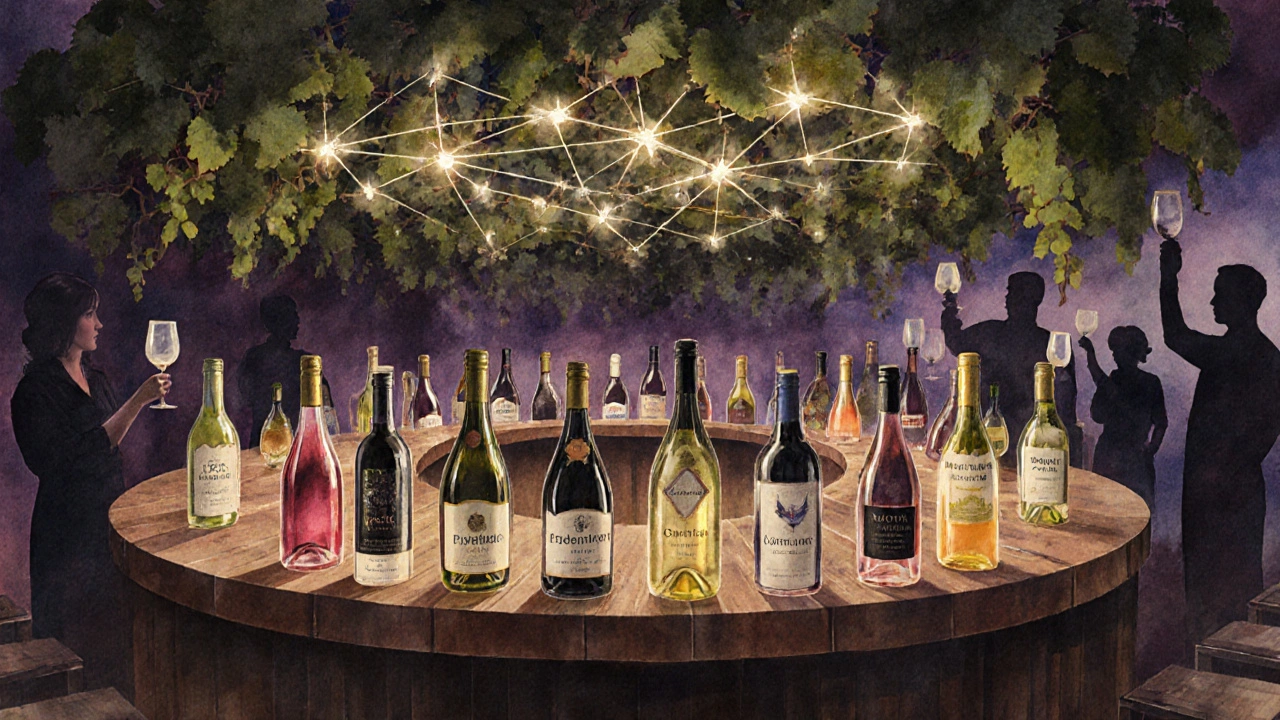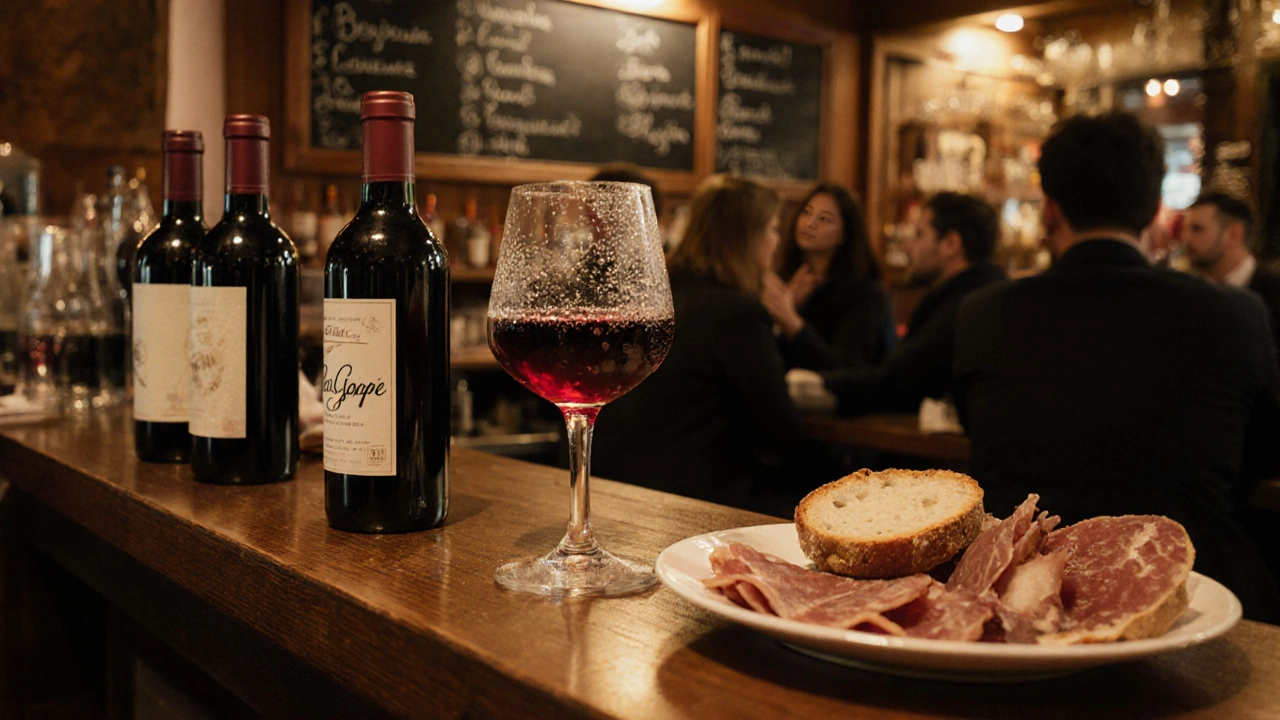London doesn’t just serve wine-it serves stories in a glass. Walk into a wine bar here and you’re not just ordering a drink; you’re stepping into a quiet rebellion against mass-produced bottles. Natural wine bars have exploded across the city, and with them, a deep love for European vineyards that work with the land, not against it. If you’re looking for places where the wine tastes like soil, sun, and time-not chemicals or additives-you’ve come to the right place.
What Makes a Wine "Natural"?
Natural wine isn’t a legal term, but it’s a movement. It starts with organic or biodynamic grapes, hand-harvested and fermented with native yeasts. No added sugars, no industrial yeasts, no sulfur unless it’s a tiny, careful pinch. The result? Wines that change slightly from bottle to bottle, sometimes cloudy, often funky, always alive. They don’t taste like every other Pinot Noir you’ve had. They taste like the vineyard they came from-whether it’s a tiny plot in the Loire Valley or a forgotten hillside in Georgia.
Most London wine bars that focus on natural wine don’t just list them-they tell you who made them. You’ll see names like La Grappe a natural wine bar in Soho known for its hands-on approach to sourcing small French producers, or Cork & Bottle a basement bar in Shoreditch that imports directly from Slovenian and Croatian growers. These aren’t just labels. These are people you can meet if you ask.
Top 5 Wine Bars in London for Natural and European Wines
Not all wine bars are created equal. Some have a hundred wines by the glass but serve them in plastic cups. Others treat every bottle like a museum piece. Here are the five that get it right-no fluff, no gimmicks, just great wine and real hospitality.
1. La Grappe Soho, London
Opened in 2022 by a former sommelier from Lyon, La Grappe feels like a Parisian bistro that got lost and ended up in Soho. The list is small-only 40 wines-but every single one is from France’s lesser-known regions: Jura, Bugey, Corsica. Their natural Beaujolais from a 70-year-old grower in Morgon? It’s bright, earthy, and tastes like crushed berries after rain. They serve it with house-made charcuterie and crusty bread. No menu. Just a chalkboard with the day’s picks and a question: "What do you feel like today?"
2. Cork & Bottle Shoreditch, London
Down a narrow alley behind a laundromat, Cork & Bottle is the kind of place you stumble into and never want to leave. The owner, Matej, is from Slovenia and imports wines directly from his family’s network of small growers. You’ll find orange wines from the Karst region, skin-contact Riesling from Croatia, and a sparkling Blaufränkisch that tastes like wild strawberries and wet stone. The bar has no website. No Instagram. Just a handwritten list taped to the door. They open at 5 PM, and if you’re not there by 7, you might miss out.
3. The Wine Bar Brixton, London
Don’t let the name fool you-this isn’t a generic chain. The Wine Bar in Brixton is run by a pair of ex-restaurant workers who quit their jobs to focus on Eastern European wines. Their shelves hold bottles from Moldova, Ukraine, and even a tiny producer in the Carpathians who makes wine in clay amphorae buried underground. Their signature pour? A 2021 Rkatsiteli from Georgia. It’s amber in color, tannic, with notes of dried apricot and walnut. Pair it with their smoked beetroot salad and you’ll understand why this place has a cult following.
4. The Glass House Camden, London
Set inside a converted 19th-century glassworks, The Glass House is the only wine bar in London with its own small vineyard in the south of France. They grow Grenache and Syrah organically and bring the wine over in bulk, bottling it on-site. Their natural reds are bold but balanced-no overripe fruit, no jammy flavors. They serve them alongside grilled sardines and tapenade on sourdough. The vibe? Cozy, slightly bohemian, and full of people who know their wines but don’t care about showing off.
5. The Winemakers Club Farringdon, London
This is the place for the curious. The Winemakers Club doesn’t just sell wine-it hosts monthly tastings with the actual producers. In October, a grower from Piedmont flew in to pour his Nebbiolo made without added sulfites. In November, it was a woman from the Alps who makes wine from a grape called Prié Blanc, found only in her village. The list rotates weekly, and you’ll find wines from places you’ve never heard of: the Azores, the Balkans, the Canary Islands. They don’t have a corkage fee. They have a "bring your own bottle" policy if you’ve found something rare. Just call ahead.
What to Order Beyond the Wine
These bars don’t just pour wine-they serve food that matches it. Forget cheese boards with pre-sliced cheddar. Think: pickled herring with dill and rye bread, roasted cauliflower with za’atar, duck rillettes on toast, or a simple plate of olives and salted almonds. The food is meant to complement, not overpower. At La Grappe, the charcuterie is cured in-house with sea salt and juniper. At The Wine Bar in Brixton, the beetroot salad is dressed in walnut oil and apple cider vinegar. You’re not eating snacks. You’re eating flavors that were grown, fermented, and preserved the old way.

How to Talk to the Staff
Don’t be afraid to ask questions. These aren’t snobby sommeliers. They’re people who love wine and want you to love it too. Say something like: "I like light, fruity reds but not too sweet." Or: "I’ve never tried an orange wine-what’s a good one to start with?" They’ll guide you. Most of them taste every wine they serve. They’ll tell you if a bottle is "a little wild" or "softer than usual this month." That’s the point. Natural wine changes. So should your expectations.
What to Avoid
Don’t expect to find Chardonnay from California or Cabernet Sauvignon from Australia. These bars don’t carry big-brand wines. If you’re looking for something familiar and safe, you’ll be disappointed. Also, don’t show up at 8:30 PM on a Friday expecting a seat. These places are small. They don’t take reservations. Arrive early. Stand at the bar. Chat with the person next to you. That’s how you’ll find your next favorite bottle.

Why This Matters
Natural wine isn’t a trend. It’s a return to something older-before industrial farming, before global shipping, before wine became a product instead of a craft. These bars in London are keeping that alive. They’re supporting growers who work with 500 vines instead of 50,000. They’re giving space to wines that don’t fit into a supermarket shelf. And they’re doing it quietly, without fanfare.
If you’ve ever wondered what wine tasted like 100 years ago, before technology cleaned it up-this is your chance. One sip, and you’ll understand why people keep coming back.
What’s the difference between natural wine and organic wine?
Organic wine means the grapes are grown without synthetic pesticides or fertilizers. Natural wine goes further: it’s made with native yeasts, no added sugars or sulfites (or only tiny amounts), and no industrial manipulation. All natural wines are organic, but not all organic wines are natural.
Are natural wines more expensive?
Sometimes, yes. Because they’re made in small batches by hand, with no shortcuts, the price per bottle is often higher. But at these London bars, you can often get a glass for £8-£12. That’s less than a premium cocktail, and you’re tasting something unique you won’t find anywhere else.
Do natural wines give you less of a hangover?
There’s no scientific proof, but many people report feeling better after drinking natural wine. That’s likely because they contain fewer additives-no coloring agents, no flavor enhancers, no excess sulfites. Your body doesn’t have to process as many chemicals. It’s not a cure, but it helps.
Can I buy these wines to take home?
Most of these bars sell bottles to go. La Grappe, The Wine Bar, and The Winemakers Club all have a small retail section. You can buy a bottle of the same wine you tried at the bar-sometimes even signed by the grower. It’s the best way to keep the experience going.
Are these wine bars good for groups?
Small groups, yes. These places are cozy, usually with 10-20 seats. They’re not ideal for big parties or loud celebrations. But if you’re with 2-4 people who care about wine and conversation, they’re perfect. Come early, sit at the bar, and let the staff help you pick a few bottles to share.
Next Steps: Where to Go After This
Once you’ve tried these five, expand your search. Try Wine Workshop in Peckham, known for its rotating list of Italian natural wines, or The Wine Union in Hackney, which hosts blind tastings with local chefs. You can also follow Instagram accounts like @naturalwine.london or @winebottleproject for weekly updates on pop-ups and new arrivals. The scene is growing fast-and it’s still real.
